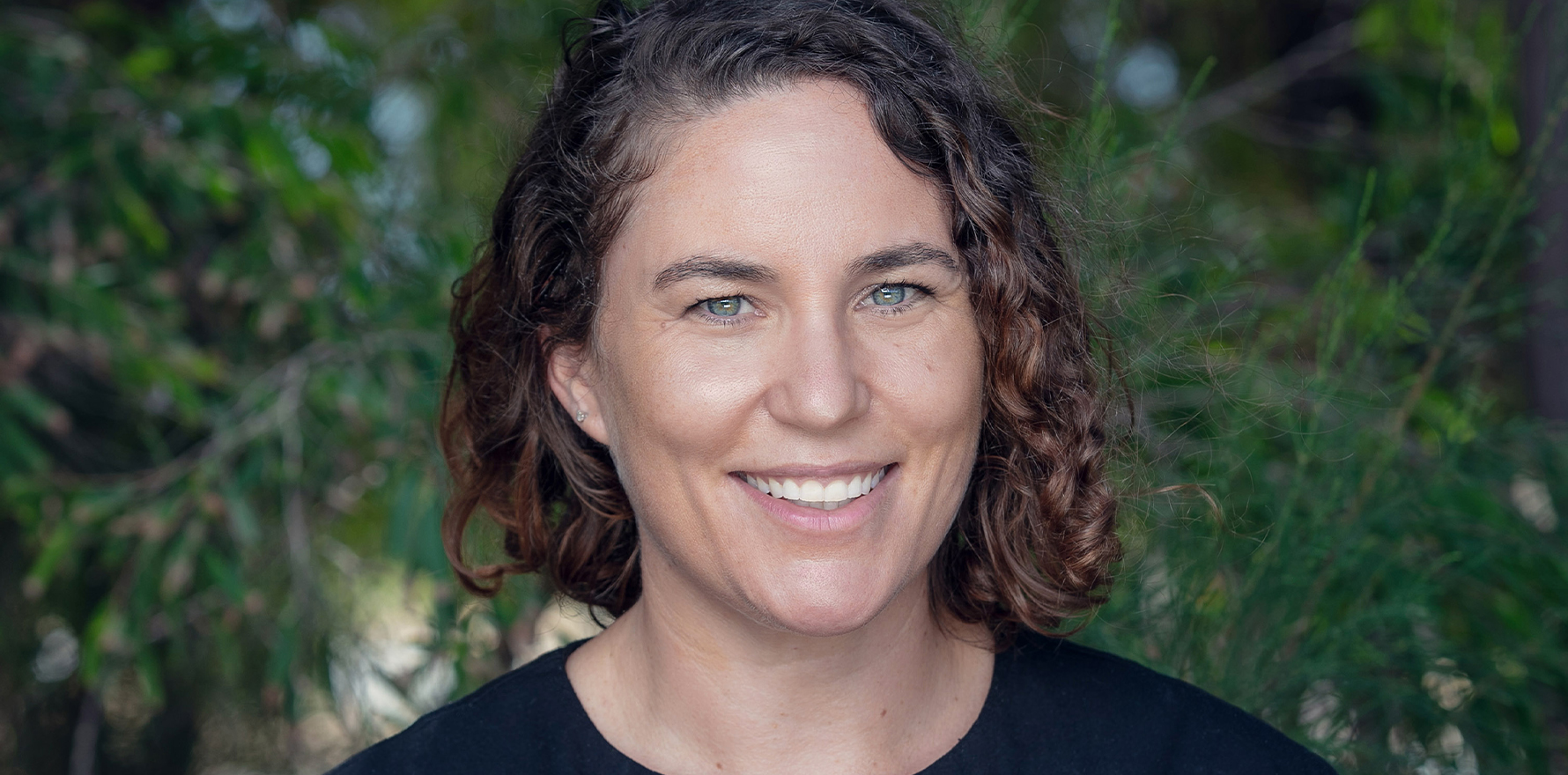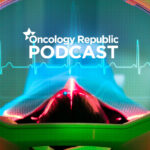Meet our newest editorial board member, Dr Nina Stewart
GenesisCare Radiation Oncologist Dr Nina Stewart has joined Oncology Republic’s editorial board and brings with her a special clinical interest in breast, neuro-oncology, palliative care, and stereotactic radiation therapy.
Dr Stewart completed her Bachelor of Medicine and Surgery at the University of Western Australia (UWA) with honours in 2008 and began her medical career at Fremantle hospital followed by community programs in the Kimberley and in palliative care. She commenced specialist training in radiation oncology at Prince of Wales Hospital (NSW) in 2014 and gained experience in stereotactic radiotherapy and paediatric oncology. This was followed by a clinical research fellowship in breast and central nervous system tumours at Fiona Stanley Hospital, where Nina developed a treatment protocol to examine radiotherapy planning CT scans as a way of estimating a patient’s risk of future coronary artery disease.
Dr Stewart is passionate about increasing patient access to the latest treatment techniques and advancements in regional Western Australia. She has been an examiner of medical students at UWA and UNSW and continues to lecture current radiation oncology trainees. She is also a member of the RANZCR palliative care working group and is a board-certified lifestyle medicine practitioner.
Her clinical interests are breast and neuro-oncology, palliative care, stereotactic radiotherapy, value-based health care, patient experience and outcome measures. She also has a keen interest in the benefits of integrative medicine.
Dr Stewart sat down with Oncology Republic’s associate editor Amanda Sheppeard for a Q&A. Here’s what she had to say.
Can you tell me a bit about yourself and what attracted you to your field of medicine in the beginning?
I always thought my strong point was patient interpersonal relationships and therapeutic relationships. I think the end of life, or the start of life is where you can make the greatest difference. I did a few rotations, and I did some work for a while in palliative care. It was just by chance that one of my friends said: “Have you ever tried radiation oncology because we have quite a lot of palliative care within that.” The science is fascinating, and it still allows me to have really strong therapeutic relationships, and then there’s the research piece which is really significant in radiation oncology. There are so many opportunities in research in terms of new adaptive technologies but also a big focus of mine is coming back to basics in terms of lifestyle measures, survivorship, and that integrated oncology approach. So, I just started working in it and absolutely loved it. So that was 12 or so years ago now.
Who made an impact on you during your radiation oncology training?
I did the majority of my radiation oncology training at Prince of Wales Hospital in Sydney. Professor Bob Smee was my first mentor and teacher in the field.
Is there an area of radiation oncology that particularly interests you?
So, my main clinical area of interest is breast cancer which I think really suits my strengths in patient connection and communication. We see so many women and young families impacted by breast cancer, and they do really benefit from that extra attention and communication. The biology of breast cancer is fascinating, and I feel we are learning more each day, so I love the science, but I also love my patients as well., I have also done quite a bit of stereotactic treatment as well, which is a highly targeted treatment where we deliver higher doses of targeted radiation therapy over fewer treatment sessions. Down in Bunbury, where I am working at the moment, we are required to be a bit more of a generalist I think, which is excellent. It’s fantastic to work at GenesisCare because we have such a strong clinical network, so we all work really closely with the more sub-specialised doctors to make sure we’re aligning with standards of care, nationally and internationally.
What else are you working on at the moment?
I’ve got a couple of projects going in the area of survivorship, which is such an important part of cancer care, and one of them we’re about to launch quite soon. It is a project focused on monitoring cancer patients for cardiac side effects associated with particular cancer treatments/therapies and it is part of an emerging new field of medicine known as CardioOncology. We’re basically using the CT scan that you get for the therapy planning. Anyone that has a chest CT scan, we’re looking at their coronary arteries on that CT scan. There’s a test called coronary artery calcium (CAT) score, which is gold standard within the cardiology space. We’re looking at calculating the impact score on any patient that has a CT scan of the chest and then if they do have an elevated score, they’ll be referred to our cardiology colleagues for further investigation and management. This particular project is just a feasibility trial, it’s getting back to basics of how we can improve what we’re doing and ensure our patients can live long, happy lives. At GenesisCare in Western Australia we have lots of exciting new technologies that allow us to deliver highly targeted treatment and will soon be launching WA’s first MR Linac, a machine that combines a highly advanced linear accelerator with an MRI. It allows our clinicians to visualise tumours in real time, minimising dose to surrounding healthy tissue which is so important in terms of survivorship and ensuring patients have the best quality of life. The majority of my patients will still be alive to potentially develop radiation toxicities in the future. So how do we modify how we deliver their care and how do we follow them up to make sure we’re looking more holistically? Another thing I am looking at is women in leadership positions. I am working with head office at GenesisCare to run surveys of our female doctors across the network to see how many women are in both clinical and administrative leadership roles and how we can improve female representation in leadership roles
How is covid impacting people in WA, given it is really the last state to experience a major outbreak of Omicron?
Covid is creeping in over here and I think we’re really well placed given the experience in other parts of Australia, and that’s another benefit of working for a national company like GenesisCare, we do share these experiences and lessons learned. It hasn’t impacted us too much as yet, apart for telehealth, which definitely comes with both advantages and disadvantages. It is fantastic for example for our regional patients, like some of the patients I see in Bunbury, who otherwise would have to travel potentially hundreds of kilometres for appointments. I think the way that we’ve approached the situation that we’re in at the moment is that I will still meet all of my new patients face-to-face because I think it is really important for that initial connection and to build up a relationship. And then I also see my patients on treatment as required face-to-face, but otherwise it’s telehealth. We’ve been lucky in that patients are given rapid antigen tests that they can do before they come into the centre. So, yes, we are definitely protected by the fact that we’ve learned so much from colleagues and we are supported within the company. We really know how lucky we are because we just haven’t had to wear it yet. But everybody’s really prepared. You know when the time does come and we do see a spike in cases, hopefully measures such as the rapid antigen testing and staff testing, will keep our services up and running without too many kinds of interruptions or too many staffing issues. As it stands right now, I think they’re doing an amazing job but the reason that we’re doing well is because we’ve learned from everyone else.
How has covid affected patients presenting for screening, early diagnosis, and treatment?
At the beginning of the pandemic there was definitely a lot of collective fear, particularly among immunosuppressed people such as cancer patients. People being too fearful to present was a challenge, but it was a lot more prominent in the skin cancer space as patients do typically feel as if they can ignore/put off visiting a GP for skin cancer a little bit longer. To a lesser degree it has affected screening such as mammograms and so on. I think it has been business as usual here in WA for so long. Now this is a TBC watch this space situation – what happens now that we actually experience the full impact of the pandemic as it spreads in WA. With so much more knowledge and experience based on the rest of Australia, I do feel to some degree it has been a bit more of a thought-out process. We do still see surgeons impacted in terms of elective surgery and so on, but from my experience it hasn’t been as big of an impact, and we haven’t been as hard hit. But again, it will be interesting to see another three, four or six months down the track.
What would you say have been the two greatest highlights of your career so far?
I spent quite a bit of my medical school training in rural and remote WA so landing down here in Bunbury in the southwest, where there is an amazing working group of cancer specialists, has definitely been a highlight. Everybody is well connected enough and it’s small enough to really feel the kind of vibrancy and the team work to build that collegial atmosphere. There is also just this real excitement around the new cutting-edge treatments and therapies we can bring to patients in Bunbury and the South West region. So, landing into that was really exciting and has been a real highlight for me. And then I think the coronary artery calcium trial that will be the first trial in which I’m a principal investigator. I’ve worked on it tirelessly through my fellowship, which has been almost two years in the making, now probably close to three years. The trial has now been ethics approved and we’re ready to roll out, so that’s been another huge highlight for me. Otherwise just being able to balance family life whilst practicing medicine is amazing. We now live in a world where you have work opportunities, but still be able to balance that with family time. I feel so fortunate to practice in a more modern, supportive environment.
How rewarding is it to be involved in providing access to services for rural and remote people who might have previously not had access before?
I still think WA’s geography presents so many challenges, as well as opportunities, and I’m really excited to work with other rural oncologists and generalists to increase access and efficiencies in our regional and remote centres. When you look at a map of WA and you look at the points of radiotherapy access on the map, we’ve still got a long way to go. It is rewarding but it’s also with bated breath, given WA’s geographical challenges and also all of our really vulnerable rural and remote patients who still don’t get, in my opinion, critical care because of geography and access issues.
How do you see the future for cancer in Australia in general, and in terms of outcomes, early diagnosis, and treatment?
I think it’s just going to continuously improve and there are so many emerging new therapies, particularly in the area of precision medicine Precision medicine is focused on looking at a certain person’s vulnerabilities genetically and being able to provide tailor treatment to their exact genetic imprint/needs. Radiation therapy is also becoming so much more precise with the introduction of new technologies, and it is amazing to look back at how far we have come over the last twenty years. A lot of the new precision medicine tools and technologies will also lead us to de-escalation of care as well. I think we’ll see a lot of people, rather than being treated on a population or statistical basis, being treated on an individual basis, precision basis, and I do think that’s starting to happen now. And I think that in the next five to 10 years, that will improve even further and then I think we will also be looking at more tailored survivorship programs, whether it be early imaging, different modalities of imaging, stratifying patients more accurately to make sure that we’re sort of encompassing all survivorship needs and just kind of taking a step back and treating them throughout in a more sort of holistic nature and not just getting their cancer cured but getting them back to where they were before.
Learn more about the Oncology Republic Editorial Board here.




